Abstract
Liquid test meals were infused into the stomach and acid secretion was measured by intragastric titration at pH 5.0 Acid secretion after 500 or 750-ml sodium chloride meals was two to three times higher than basal secretion rates and was equivalent to 25-30% of the peak acid output in response to histamine. Since these meals did not cause a rise in serum gastrin concentration, it is assumed that they stimulate acid secretion by causing distention of the body and fundus of the stomach. Compared with this distention stimulus, glucose meals had no effect on acid secretion and fat-inhibited acid secretion; however, both glucose and fat caused an increase in serum gastrin concentration. Amino acids caused a much greater increase in serum gastrin concentration and enhanced acid secretion above that noted with distention alone. In contrast, albumin did not enhance the serum gastrin concentration or stimulate acid secretion to a statistically significant extent. There was a close correlation between the rise in serum gastrin concentration and rate of acid secretion after different test meals when average results for each test meal were plotted. However, there was a poor correlation between acid secretion and serum gastrin concentration when the responses of the individual subjects with a given test meal were compared. Our interpretations are: (a) Distention is an important stimulant of the acid-secretory response to a meal, and this is not mediated by gastrin release. (b) Gastrin is one but probably not the only mediator of the chemical phase of acid secretion, i.e., acid secretion noted with amino acids that cannot be explained by distention. (c) Glucose and fat also release gastrin; however, with glucose the rise in serum gastrin is too small and too transient to enhance acid secretion, and fat probably releases unmeasured inhibitors that overwhelm the effect of gastrin on acid secretion. (d) Albumin is not a stimulant of acid secretion.
Full text
PDF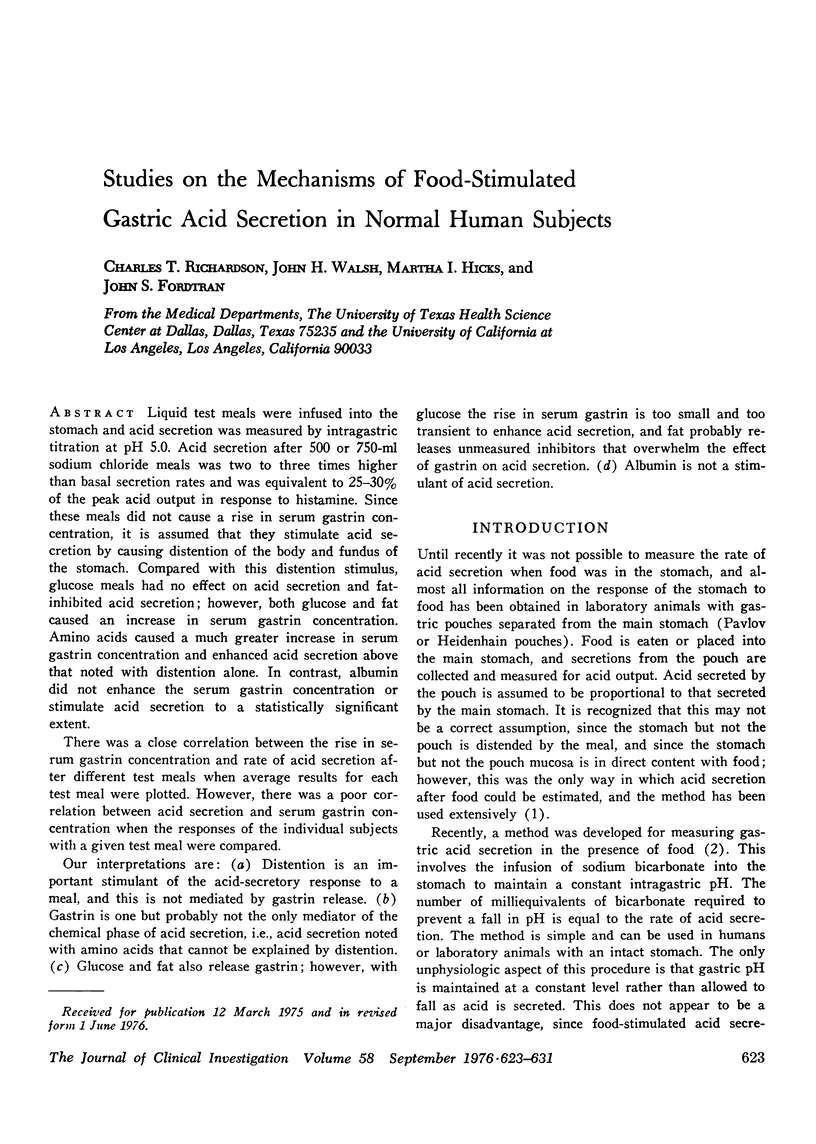
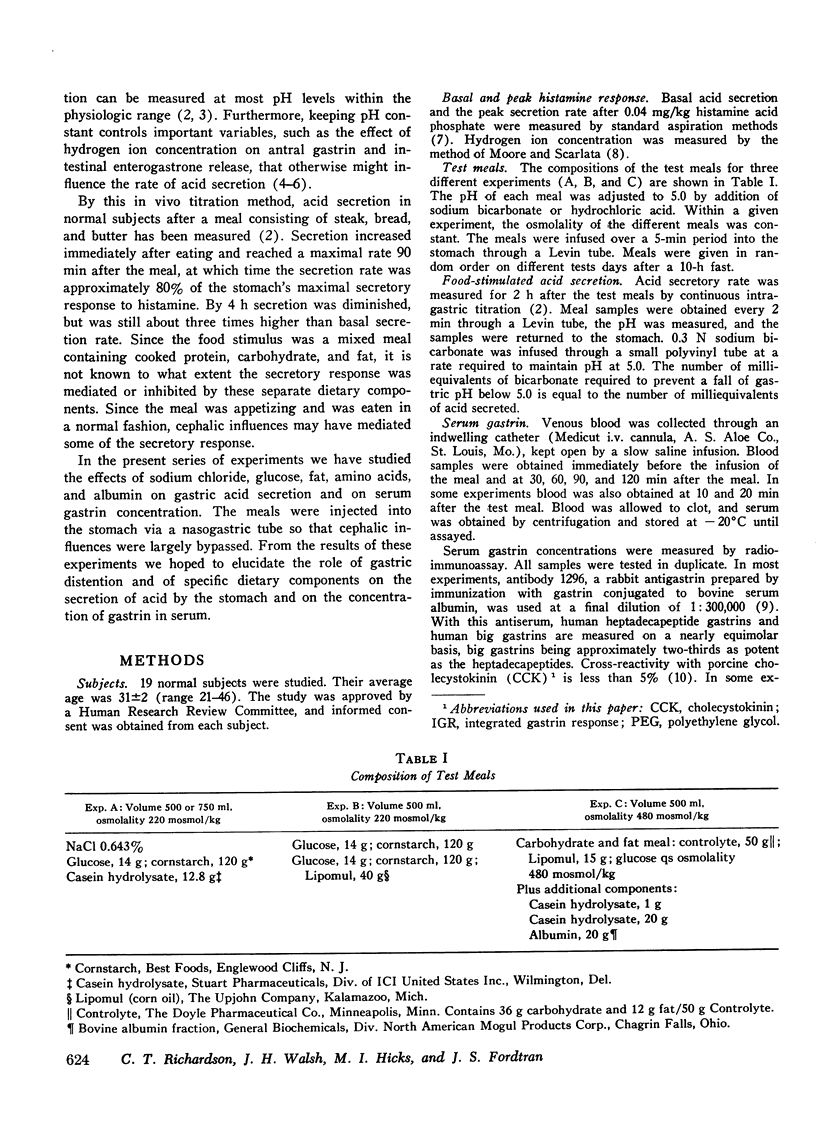
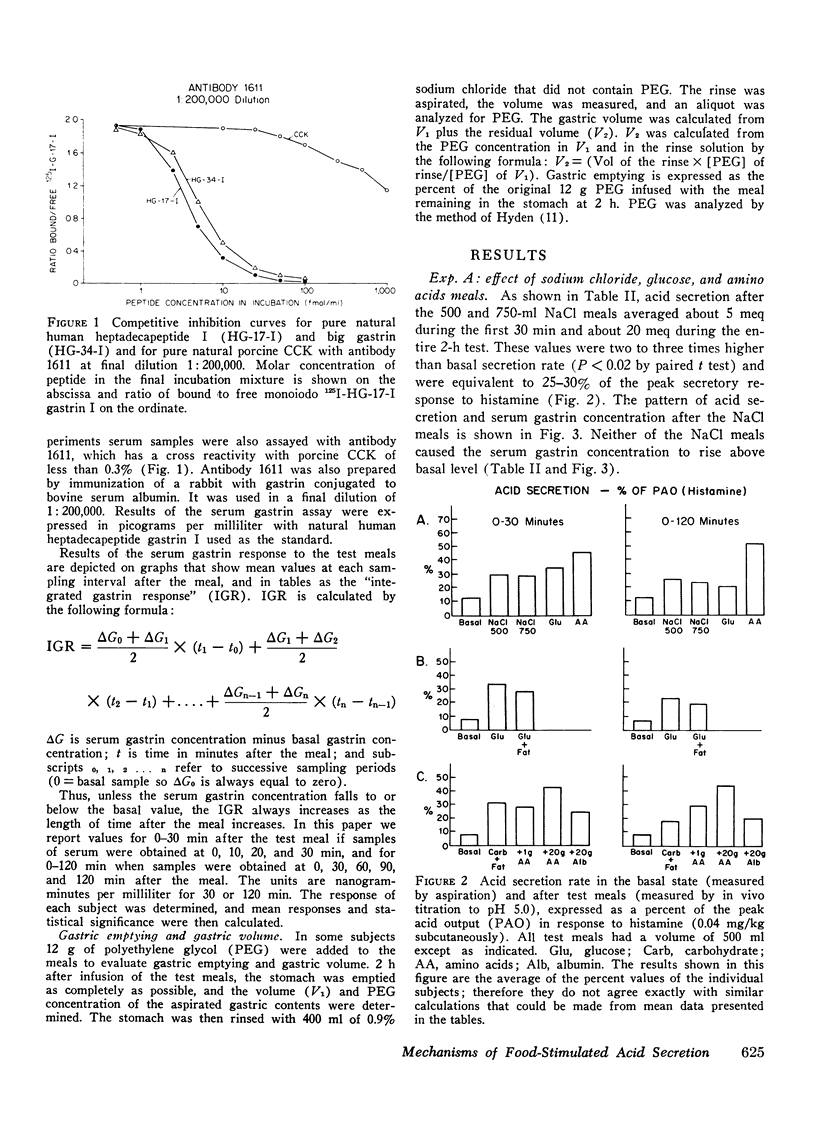
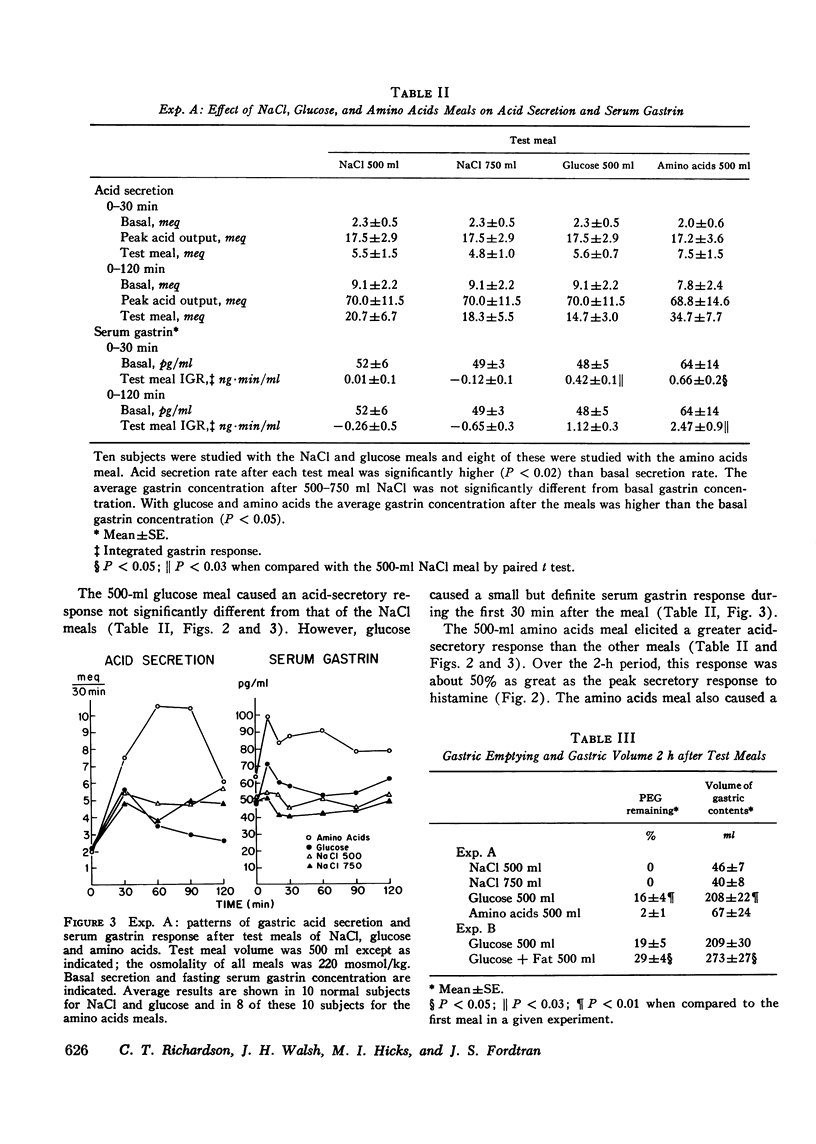
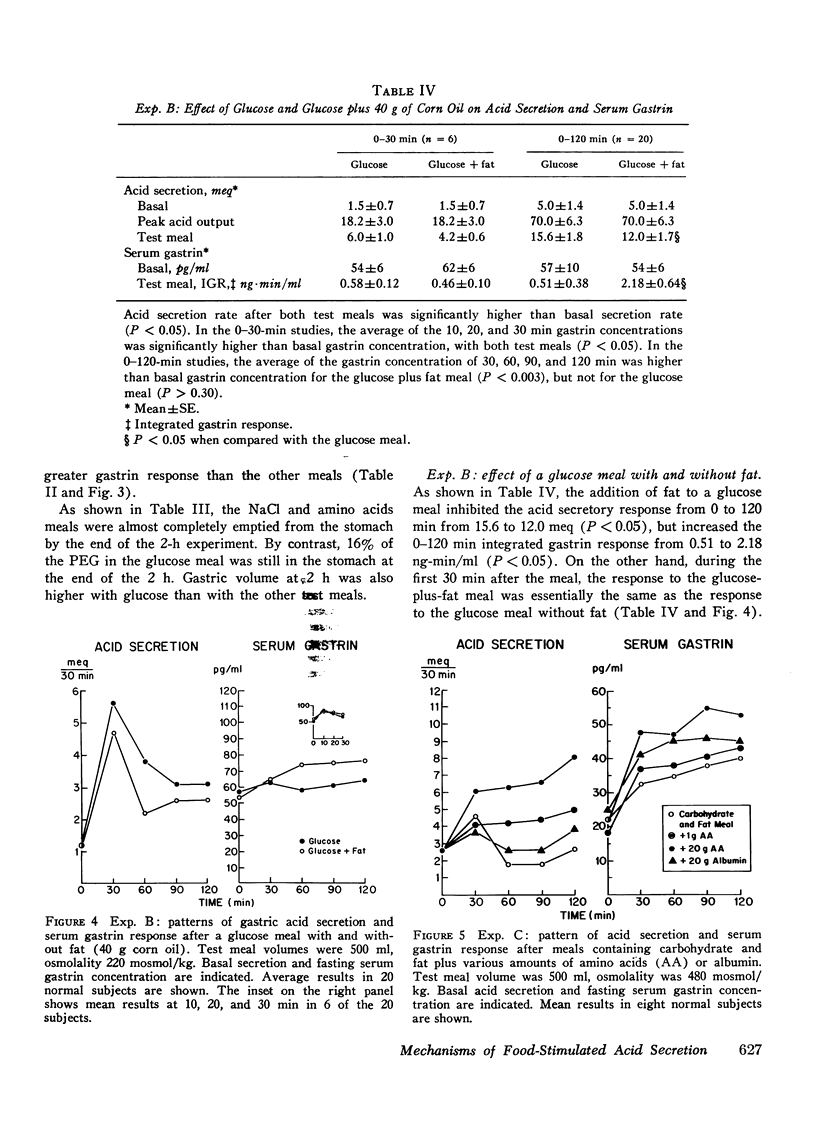
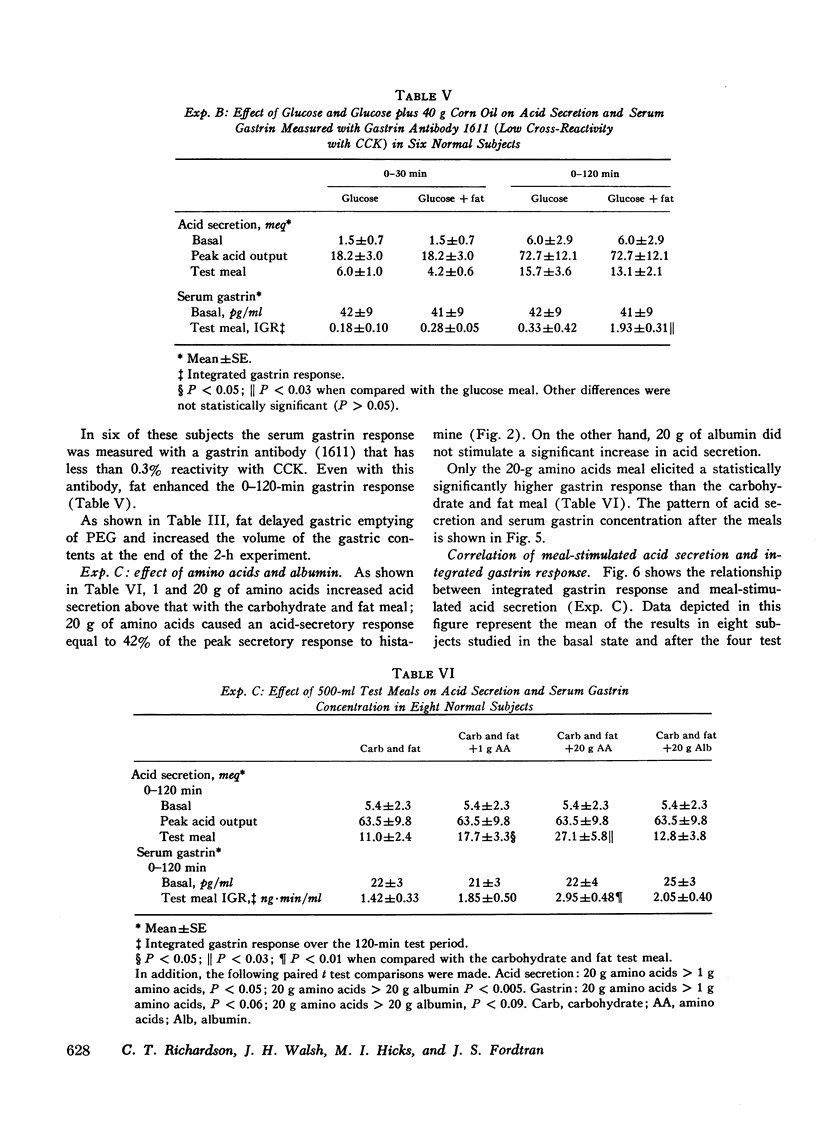


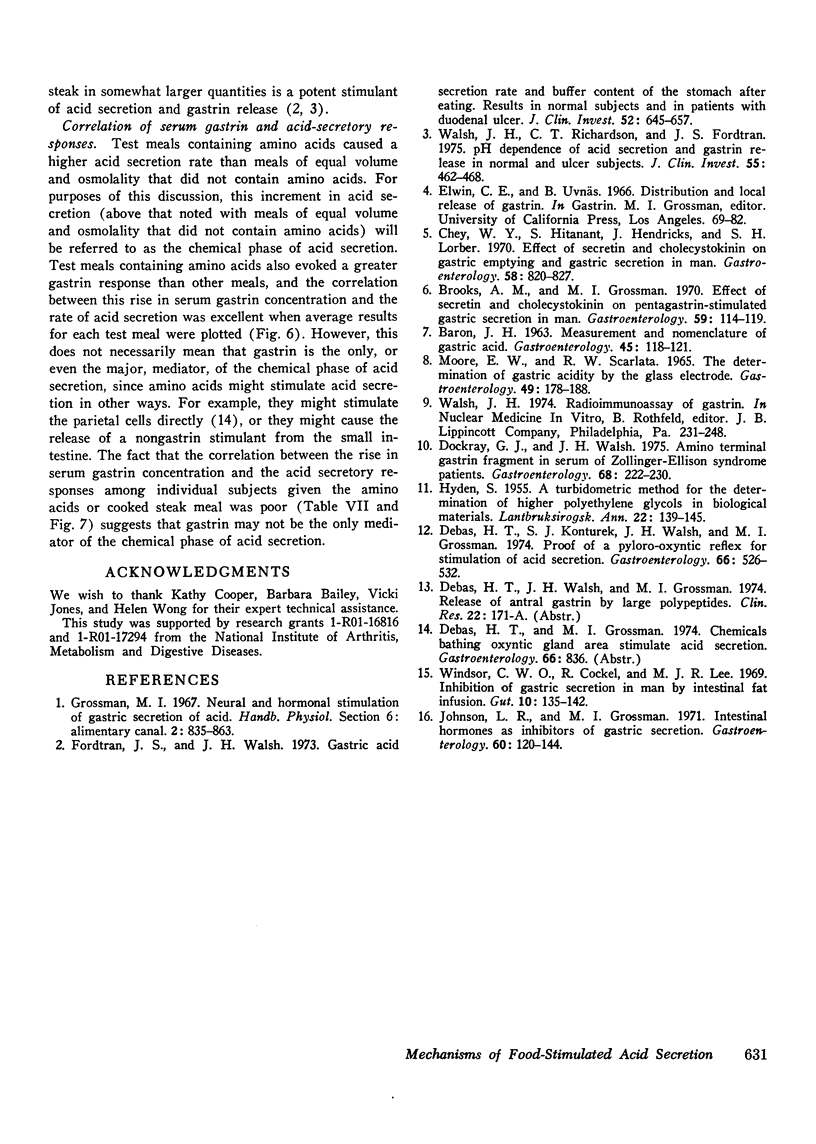
Selected References
These references are in PubMed. This may not be the complete list of references from this article.
- Brooks A. M., Grossman M. I. Effect of secretin and cholecystokinin on pentagastrin-stimulated gastric secretion in man. Gastroenterology. 1970 Jul;59(1):114–119. [PubMed] [Google Scholar]
- Chey W. Y., Hitanant S., Hendricks J., Lorber S. H. Effect of secretin and cholecystokinin on gastric emptying and gastric secretion in man. Gastroenterology. 1970 Jun;58(6):820–827. [PubMed] [Google Scholar]
- Debas H. T., Konturek S. J., Walsh J. H., Grossman M. I. Proof of a pyloro-oxyntic reflex for stimulation of acid secretion. Gastroenterology. 1974 Apr;66(4):526–532. [PubMed] [Google Scholar]
- Dockray G. J., Walsh J. H. Amino terminal gastrin fragment in serum of Zollinger-Ellison syndrome patients. Gastroenterology. 1975 Feb;68(2):222–230. [PubMed] [Google Scholar]
- Fordtran J. S., Walsh J. H. Gastric acid secretion rate and buffer content of the stomach after eating. Results in normal subjects and in patients with duodenal ulcer. J Clin Invest. 1973 Mar;52(3):645–657. doi: 10.1172/JCI107226. [DOI] [PMC free article] [PubMed] [Google Scholar]
- Johnson L. R., Grossman M. I. Intestinal hormones as inhibitors of gastric secretion. Gastroenterology. 1971 Jan;60(1):120–144. [PubMed] [Google Scholar]
- MOORE E. W., SCARLATA R. W. THE DETERMINATION OF GASTRIC ACIDITY BY THE GLASS ELECTRODE. Gastroenterology. 1965 Aug;49:178–188. [PubMed] [Google Scholar]
- VARDIVIA-BARRIGA V., FELDMAN A., ORELLANA J. MEASUREMENT AND NOMENCLATURE OF GASTRIC ACID. Gastroenterology. 1963 Jul;45:118–121. [PubMed] [Google Scholar]
- Walsh J. H., Richardson C. T., Fordtran J. S. pH dependence of acid secretion and gastrin release in normal and ulcer subjects. J Clin Invest. 1975 Mar;55(3):462–468. doi: 10.1172/JCI107952. [DOI] [PMC free article] [PubMed] [Google Scholar]
- Windsor C. W., Cockel R., Lee M. J. Inhibition of gastric secretion in man by intestinal fat infusion. Gut. 1969 Feb;10(2):135–142. doi: 10.1136/gut.10.2.135. [DOI] [PMC free article] [PubMed] [Google Scholar]


